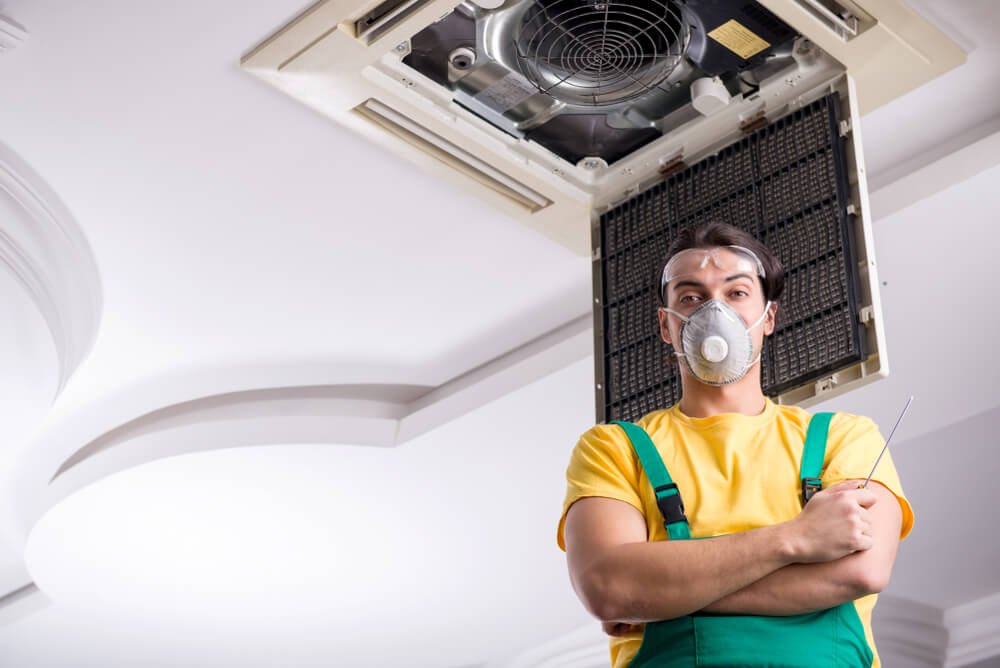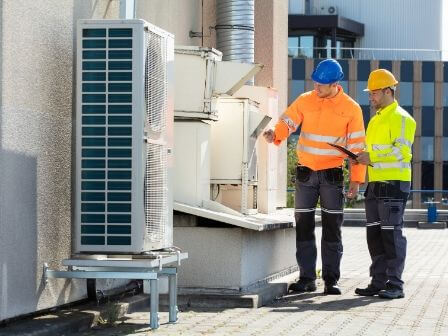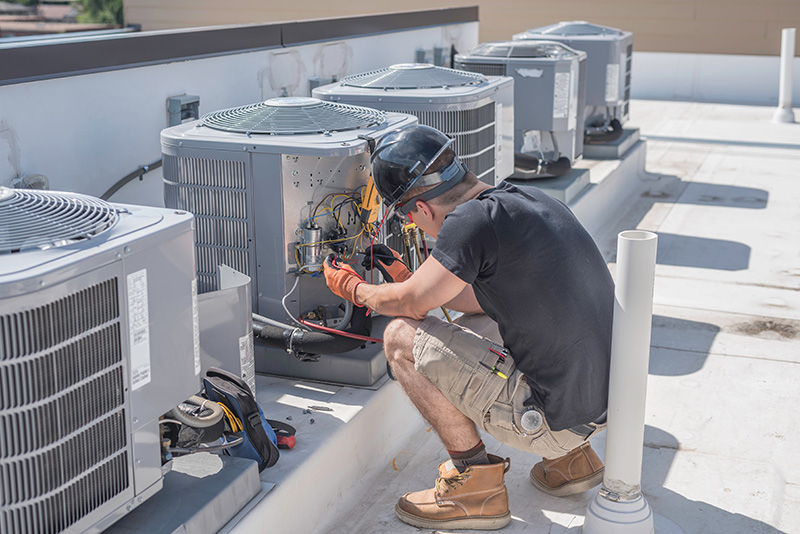Unforeseen HVAC breakdowns can quickly turn into emergencies, especially during extreme weather conditions. Whether you’re a homeowner seeking to ensure your family’s safety or a business owner aiming to maintain operations, having a plan in place for emergency HVAC repairs is crucial. In this post, we’ll provide valuable insights on safety measures homeowners can take during HVAC emergencies and guide business owners in creating contingency plans for uninterrupted operations.
 Safety Measures for Homeowners During HVAC Emergencies
Safety Measures for Homeowners During HVAC Emergencies
- Turn Off the System: In the event of an HVAC emergency, the first step is to turn off the system completely. This prevents further damage and reduces the risk of hazards.
- Check for Gas Leaks: If you have a gas-powered furnace, be vigilant about the possibility of gas leaks. If you suspect a gas leak, evacuate the premises immediately and contact your utility company.
- Shut Off Power: If the emergency is related to electrical issues, such as sparks or smoke, turn off the power to the HVAC system and the affected area.
- Prioritize Safety: If you’re experiencing an HVAC emergency during extreme temperatures, focus on keeping your family safe by using blankets, warm clothing, or fans, depending on the situation.
- Call Professionals: While DIY troubleshooting is valuable, HVAC emergencies often require professional assistance. Have the contact information of reputable HVAC repair services readily available.
- Ventilate the Area: If there’s a risk of carbon monoxide buildup due to a malfunctioning furnace, open windows and doors to allow fresh air to circulate.
 Creating Business Continuity Plans for HVAC Emergencies
Creating Business Continuity Plans for HVAC Emergencies
- Assess Critical Areas: Identify critical areas within your business that require consistent temperature control, such as server rooms, laboratories, or storage spaces for temperature-sensitive items.
- Establish Emergency Contacts: Compile a list of reliable HVAC repair companies that offer emergency services and keep this list accessible to key personnel.
- Designate Responsibility: Appoint someone within your organization to be responsible for initiating the emergency HVAC repair process when issues arise.
- Regular Maintenance: Prevent emergencies by scheduling regular HVAC maintenance to catch potential problems before they escalate.
- Invest in Redundancy: For mission-critical areas, consider investing in backup HVAC systems or portable heating/cooling units to maintain temperature control during emergencies.
- Communicate with Employees: Educate your employees about emergency protocols and actions to take in case of HVAC failures. Ensure they know how to report issues promptly.
- Document the Plan: Create a comprehensive HVAC emergency plan that outlines steps, responsibilities, and contacts. Make this information easily accessible to relevant personnel.
Conclusion
Both homeowners and business owners can benefit from being prepared for HVAC emergencies. By following safety measures at home and creating comprehensive business continuity plans, you can mitigate risks, ensure the well-being of your loved ones, and maintain seamless operations even during unexpected breakdowns. If you need HVAC Repair in Mount Pleasant, SC, give these guys a call!
Remember, the key is to act swiftly, prioritize safety, and collaborate with professionals to address HVAC emergencies effectively.


